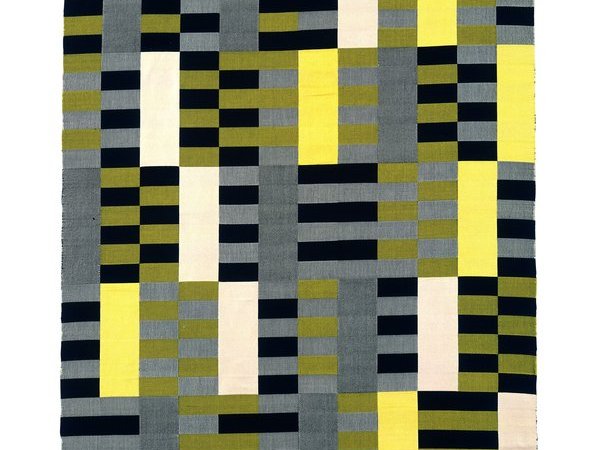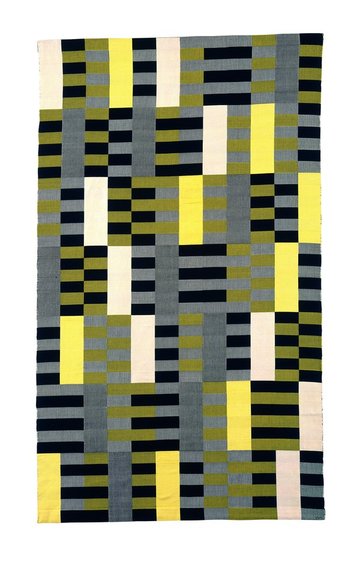Tate Modern presents the UK’s first major retrospective of the work of Anni Albers (1899– 1994). This exhibition brings together her most important works from major collections in the US and Europe, many of which will be shown in the UK for the first time, to highlight Albers’s significance as an artist. Opening ahead of the centenary of the Bauhaus in 2019, it is long overdue recognition of Albers’s pivotal contribution to modern art and design, and part of Tate Modern’s wider commitment to showing artists working in textiles.
Anni Albers combined the ancient craft of hand-weaving with the language of modern art, finding within the medium many possibilities for the expression of modern life. Featuring over 350 objects including beautiful small-scale studies, large wall-hangings, jewellery made from everyday items, and textiles designed for mass production, this exhibition explores the many aspects of Albers’s practice - such as the intersection between art and craft; hand-weaving and machine production; ancient and modern. Significant weavings such as Ancient Writing1936 and Six Prayers1966-67 - Albers’s moving memorial commemorating the six million Jews who died in the Holocaust, commissioned by the Jewish Museum in New York - are shown in this country for the first time. The artist’s lesser-known commissioned works exploring the relationship between textiles and architecture are also highlighted, including Albers’s designs for a large wall-hanging at the iconic modernist Camino Real hotel in Mexico City in 1968. The exhibition design itself takes inspiration from the artist’s own writings, such as her seminal essay ‘The Pliable Plane: Textiles in Architecture’, 1957, in which Albers advocates ‘a new understanding between the architect and the inventive weaver’.
The exhibition focuses on Albers’s seminal texts, ‘On Designing’ 1959 and ‘On Weaving’ 1965, in which she reflects on the history of weaving as a global phenomenon, dating back thousands of years yet typically modern. In both her work and her writing, she presents a vastly expanded geography of modern art, drawing on sources from Africa, Asia and the Americas. A range of remarkable loans from The Josef & Anni Albers Foundation also showcase Albers’s ground-breaking late works - such as TR II1970 and Red Meander I1969- 70 - revealing her constant development as a highly original abstract artist whose enduring influence inspires new generations of artists and designers around the world.
Anni Albersis organised by Tate Modern and Stiftung Kunstsammlung Nordrhein-Westfalen, Düsseldorf. It is curated by Ann Coxon, Curator, International Art, Tate Modern, Professor Briony Fer, University College London with Maria Müller-Schareck, Curator, Stiftung Kunstsammlung Nordrhein-Westfalen assisted by Priyesh Mistry, Assistant Curator, International Art, Tate Modern and Linda Walther, Assistant Curator, Stiftung Kunstsammlung Nordrhein-Westfalen. The show is accompanied by an exhibition catalogue featuring new research on Albers’ work. Visitors are invited to view textile works by other artists including Lenore Tawney, Olga de Amaral and Sheila Hicks as part of Tate Modern’s free collection display Beyond Crafton view in the Natalie Bell Building until December 2018.


